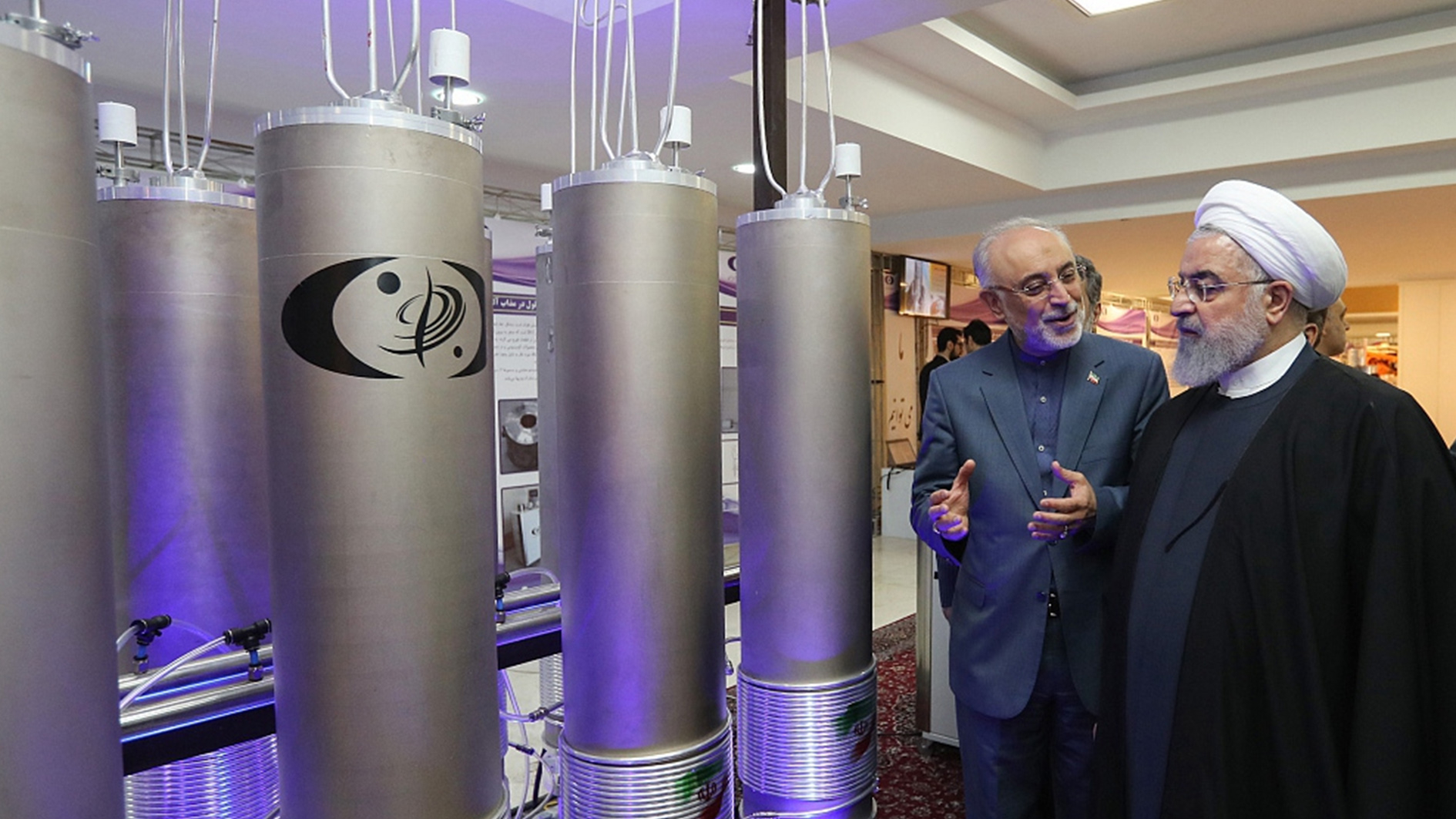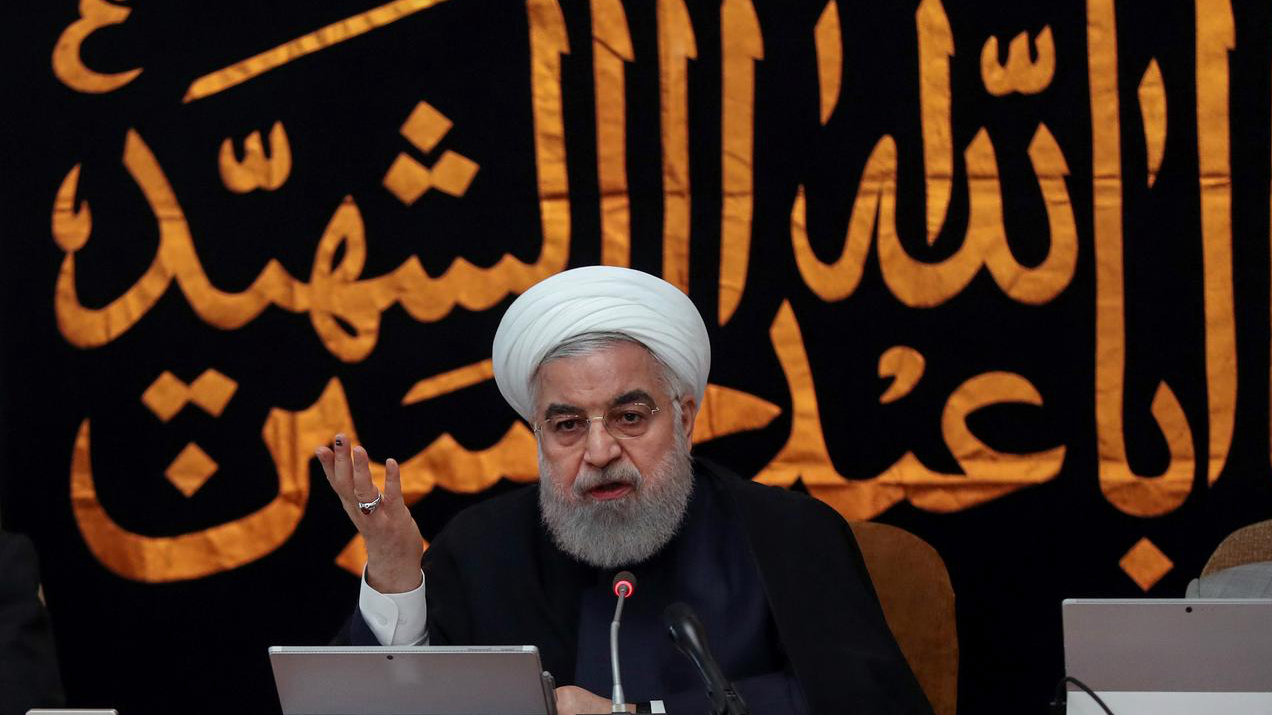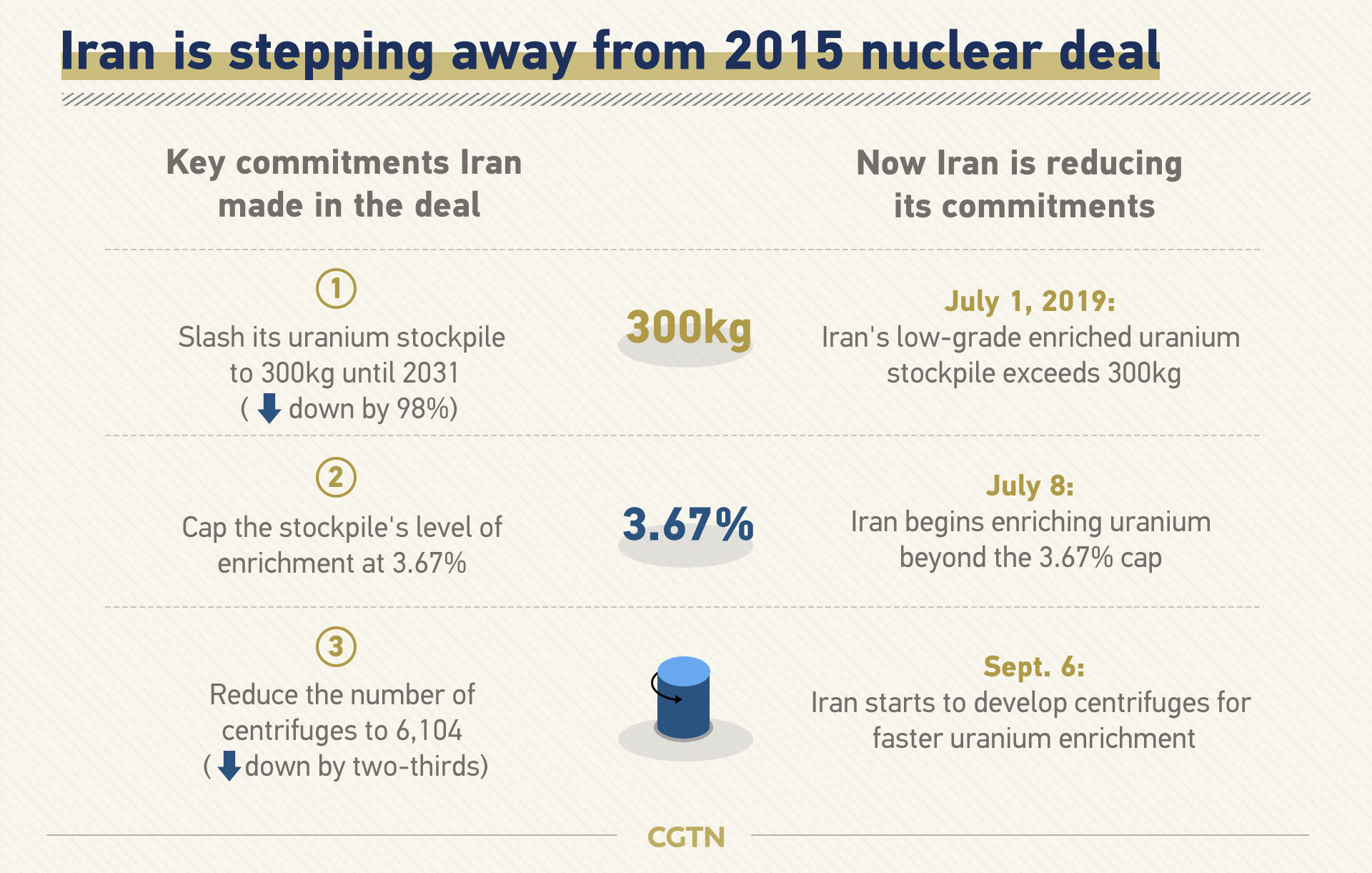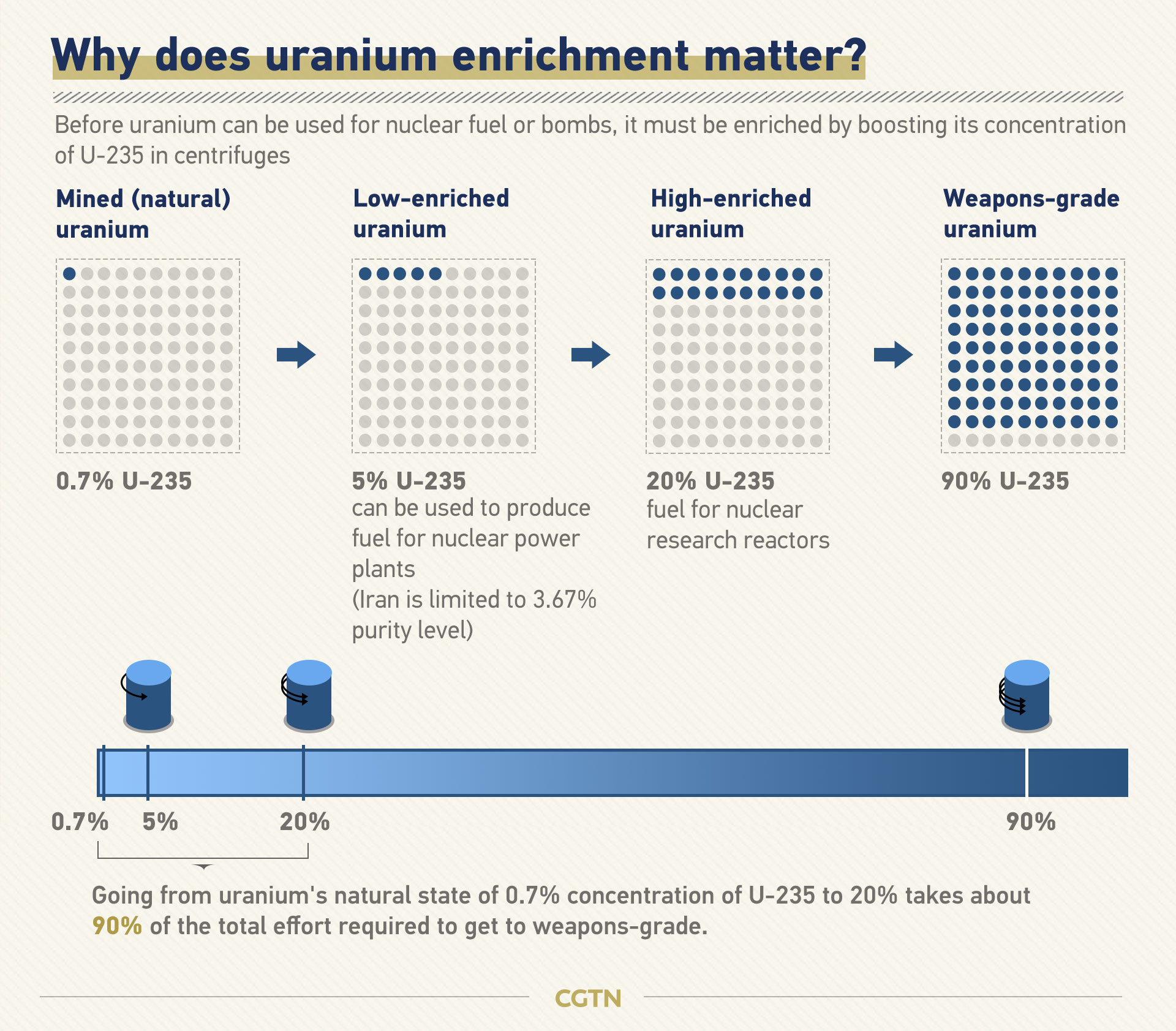

Iran has started up advanced centrifuges to boost the country's stockpile of enriched uranium, its atomic energy organization spokesman Behrouz Kamalvandi said on Saturday.
The agency activated 20 IR-4 and 20 IR-6 centrifuges, Kamalvandi told a televised news conference in Tehran, as a third step in Iran's reduction of its commitments under a 2015 nuclear deal.
"The centrifuge machines, as they are engaged in research and development, will help with increasing the stockpile," Kamalvandi said.
"The capacity of these machines is many times more than the previous machines. This started as of yesterday (Friday)," he told reporters.
But Kamalvandi said Iran would allow the UN atomic agency – the International Atomic Energy Agency (IAEA) – to continue monitoring its nuclear program.
"Regarding the monitoring and accesses of the IAEA... so that everything is clear (Iran's) commitments regarding transparency will be followed as before," he said.

Iranian President Hassan Rouhani addresses a cabinet meeting in Tehran, September 4, 2019. /Reuters Photo
Iran and three European countries – Britain, France and Germany – have been engaged in talks to save the nuclear deal that has been unraveling since the U.S. withdrew from it last year and reimposed sanctions on the country.
Read More:
Iran on Wednesday had warned it would carry out a third round of cuts to its commitments unless European parties to the deal offset the effect of U.S. sanctions in return for its continued compliance.
"From Friday, we will witness research and development on different kinds of centrifuges and new centrifuges and also whatever is needed for enriching uranium in an accelerated way," Iranian President Hassan Rouhani said. "All limitations on our research and development will be lifted on Friday."

The country has already hit back twice with countermeasures in response to the U.S. withdrawal from the 2015 deal, which promised it relief from sanctions in return for curbs on its nuclear program.
On July 1, Iran said it had increased its stockpile of enriched uranium to beyond the 300-kilogram maximum set by the deal. A week later, it announced it had exceeded a 3.67-percent cap on the purity of its uranium stocks.
Read More:
Iran-U.S. feud: What is 'uranium enrichment' and why does it matter?

U.S. 'not surprised'
The U.S. refused to ease its economic sanctions on Iran. Instead, it imposed fresh ones designed to choke off the smuggling of Iranian oil and rebuffed, but did not rule out, a French plan to give Tehran a 15 billion U.S. dollar credit line.
U.S. Defense Secretary Mark Esper said Saturday he was "not surprised" Iran had turned on advanced centrifuges to increase uranium stockpiles.
"I'm not surprised that Iran has announced that it's going to violate the JCPOA," Esper said in Paris, following talks with his French counterpart Florence Parly.
Parly reiterated France's calls for Tehran to "respect the Vienna accord", adding "we will continue with all our diplomatic efforts in this direction. We have to continue."
French President Emmanuel Macron has overseen recent talks between French and Iranian officials, and said he has obtained a mandate to deliver a message to Iran on behalf of the seven countries at last month's G7 summit.
Trump, who has pushed a maximum pressure policy on Iran, distanced himself from the proposal, saying he had not even discussed it.
Esper said he had "productive discussions" with Parly, though neither indicated any progress had been made on de-escalating the conflict.
They also agreed to disagree on the U.S.'s new "maritime security mission" in the Gulf, aimed at ensuring open passage for vessels through the Strait of Hormuz after a series of incidents, including ship seizures, by Iranian forces.
France has declined to join the U.S. initiative and instead sought out like-minded partners for its own surveillance of the strategic waterway.
(Cover: In this file handout photo taken on April 9, 2019, by the Iranian presidential office, Iranian President Hassan Rouhani (R) listens to the head of Iran's nuclear technology organization Ali Akbar Salehi during "Nuclear Technology Day" in Tehran./ VCG photo)

Copyright © 2018 CGTN. Beijing ICP prepared NO.16065310-3
Copyright © 2018 CGTN. Beijing ICP prepared NO.16065310-3